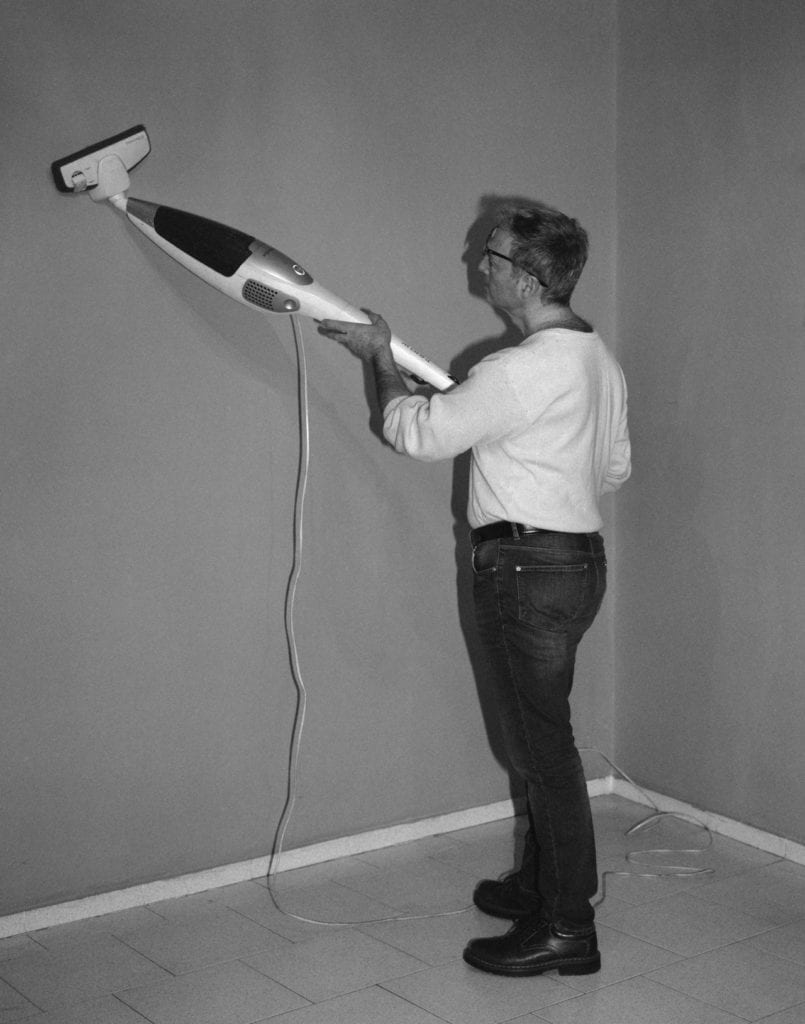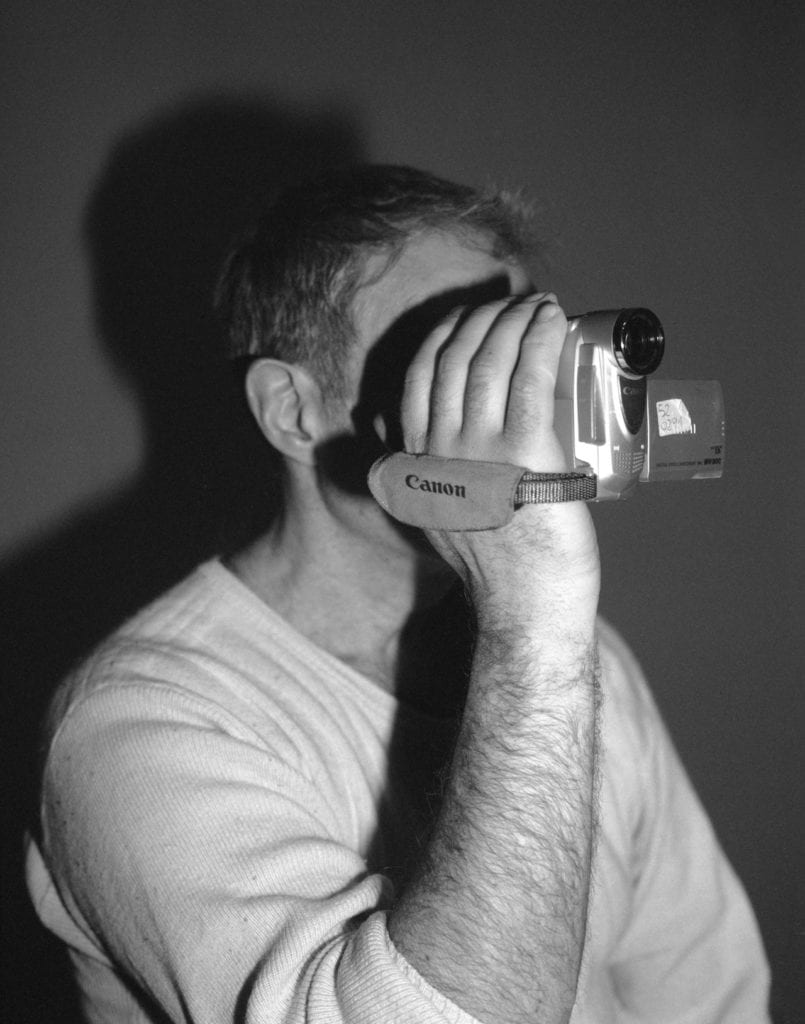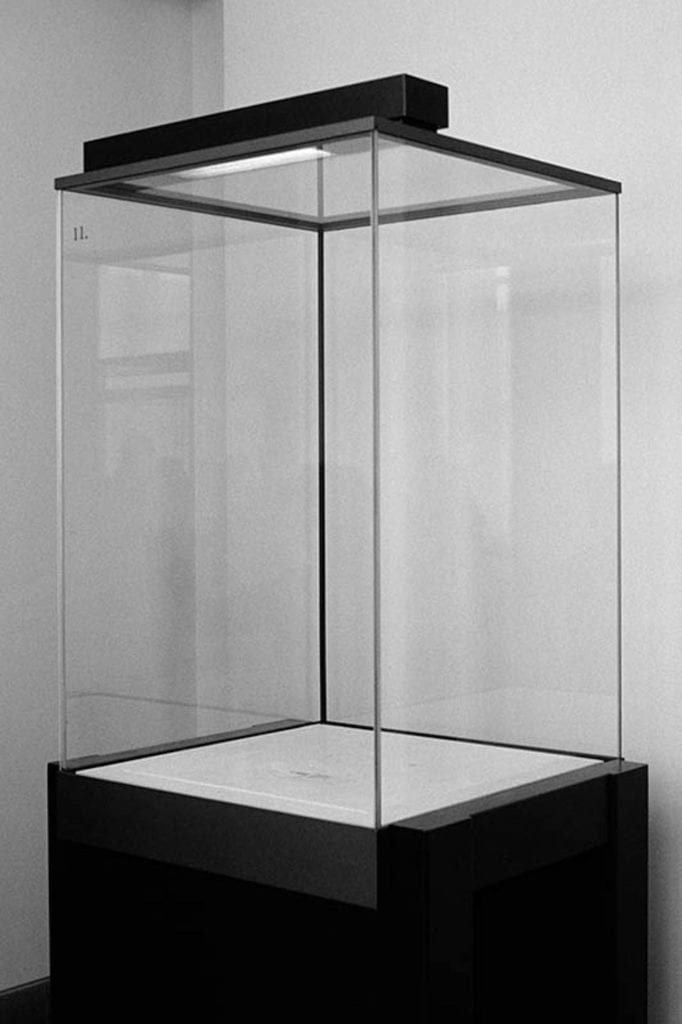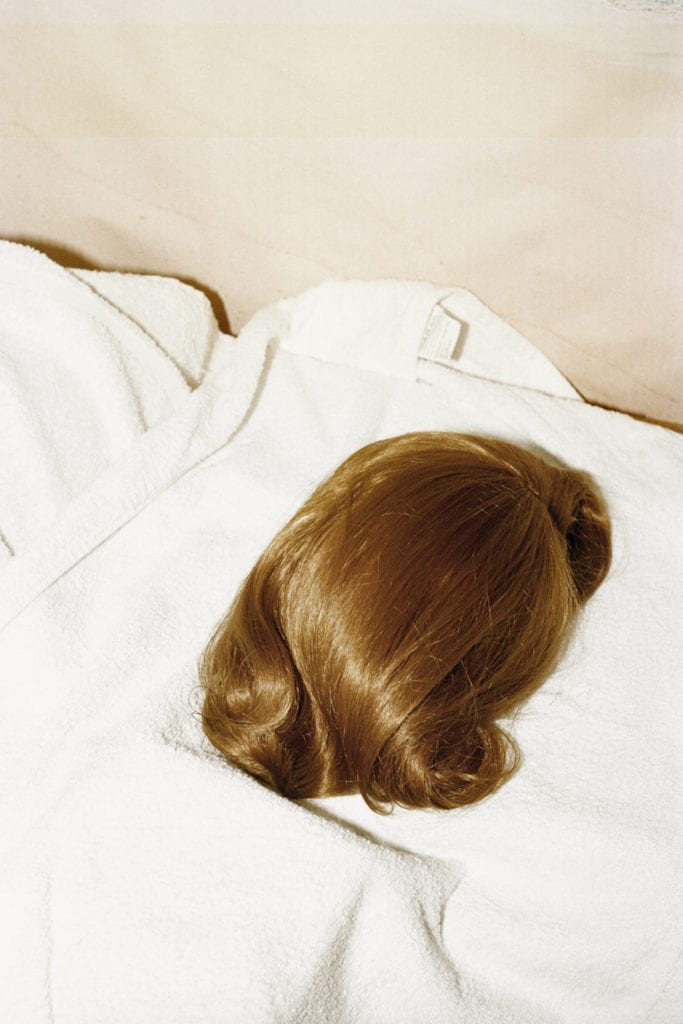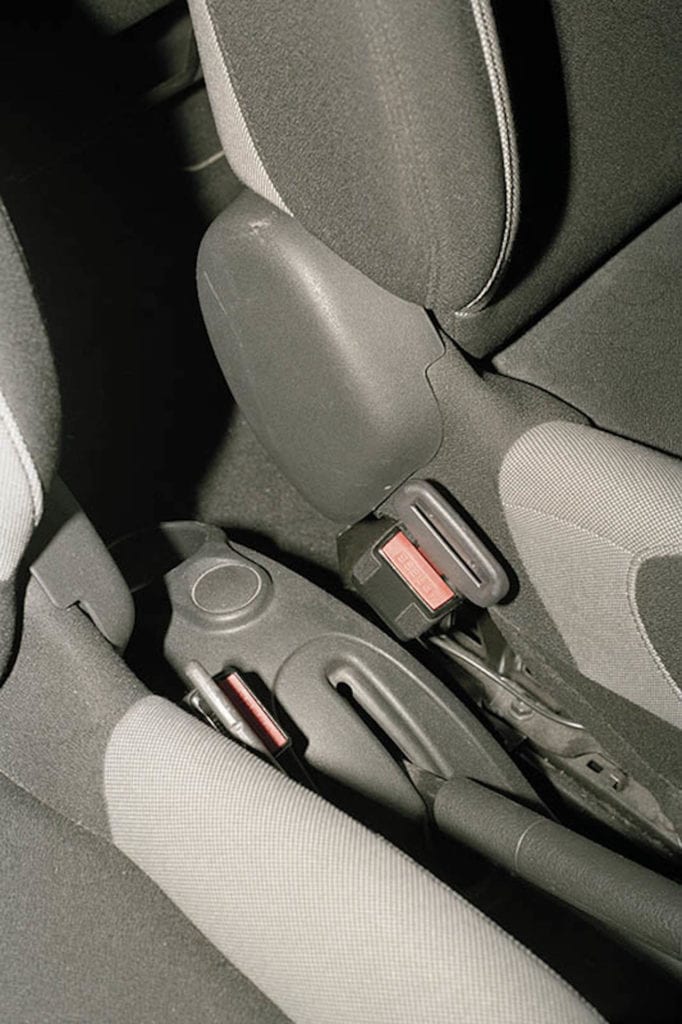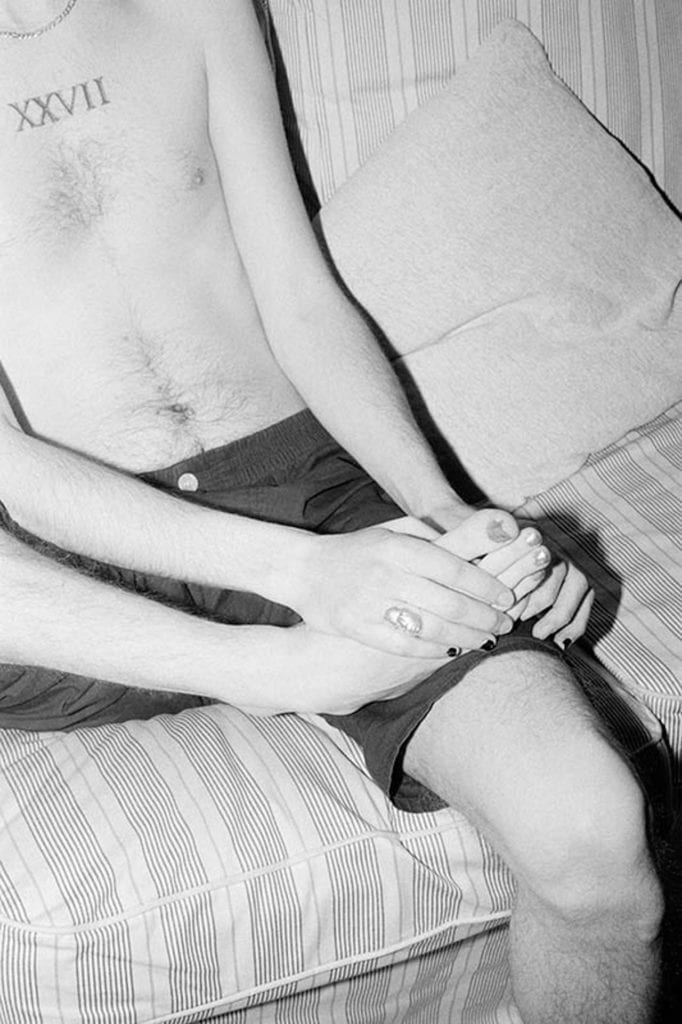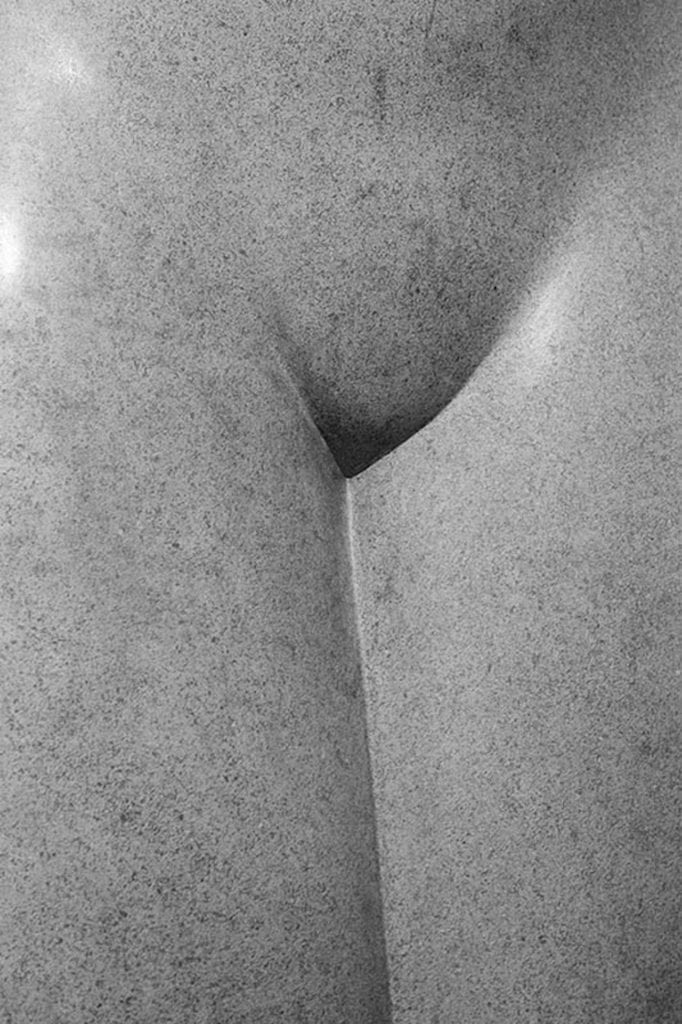A pyramid of plastic cups, her father’s sparse fridge, empty glass casings – for Sara Fiorino, all of these images represent the idea that our identities are constructed according to preconceived and performed acts of gender, race, and class.
“I look to deconstruct patterns of behaviour,” says Fiorino, who was raised near Milan, Italy, by a working-class family. “I’m interested in how social landscapes influence us as individuals, and the shared experience of how behaviour repeats itself across different people.”
Fiorino’s father was a wedding photographer and worked entirely in analogue, which is how she learned to make photographs. Growing up, the photographer was more interested in fashion magazines. However, it was during this time that she began to observe the systemic racism, sexism and classism rooted in society, which sparked her interest in the kind of conceptual photography she practices now.. “I am processing all of these ideas now that I’m older, but they come from much earlier on,” she reflects.
Fiorino began exploring these concepts in-depth during her BA in photography at Middlesex University, from which she graduated last summer. She speaks fondly about her tutors and classmates, and the resources that were made available to her through events, exhibitions, and the university’s large library, where she was introduced to many of the theories that inform and inspire her photography.
For Fiorino, the image comes at the very end of the creative process, which begins with a thought or reflection about her life, family, or society, followed by extensive research into academic theories and social concepts, such as Carl Jung’s Archetypes and the Collective Unconscious, Grayson Perry’s The Descent of Man, or Michael Young’s The Rise of the Meritocracy.
Her degree project, Material Counterpart, is currently on show as part of a group exhibition titled Inanimate Objects. The images are informed by Carl Jung’s theory that gendered identities are performed through patterns of repetitive behaviour, and that these actions provide us with validation and assurance.
For the series, Fiorino photographed her father’s kitchen and bedroom in Italy, because she saw his decorations – miniature guitars and religious ornaments – as an embodiment of his attempt to perform a certain masculine identity conceived of by society. She also photographed a wig, a sex doll, and a poster of a palm tree, to address the impossibility of achieving these idealised versions of ourselves in real life. “Ultimately, [the work] provides an insight into human fragilities,” she says.
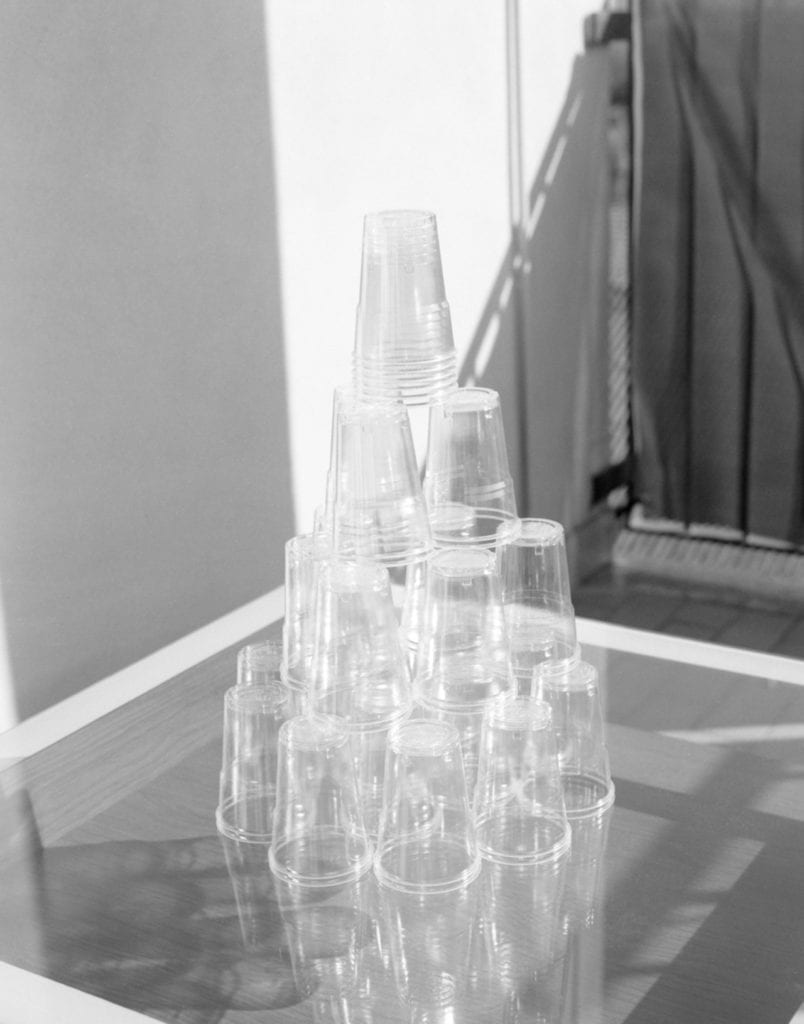
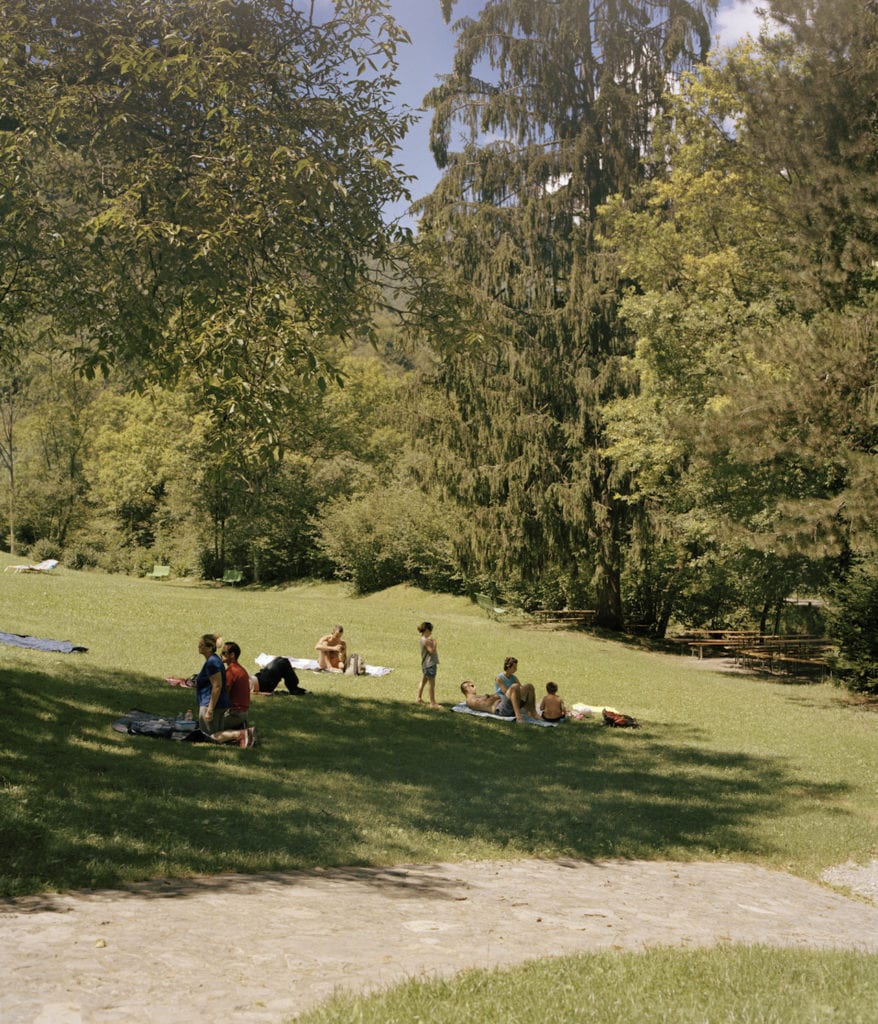
As a young photographer and recent graduate living in London, Fiorino is frank about the struggle of balancing her job in retail, and furthering her career in photography. The fact that her process is rooted in the theory that underlies her photographs makes this more manageable. Fiorino’s latest photographs are an extension of the ideas explored in Material Counterpart. The images respond to her own life post-graduation, and the relationship between class and the domestic space.
One of the issues she began thinking about was the gap between the left-wing social agenda and the everyday needs of the working class. In Darren McGarvey’s Poverty Safari, the Scotish rapper questions how we can expect working-class people to have a sense of social responsibility when they do not feel supported or represented by their government.
This notion is illustrated in her image of a pyramid of plastic cups, an idea which was triggered when she visited her aunt in Italy, who uses plastic crockery to save time, and avoid the hassle of clearing up.
In The Descent of Man, Grayson Perry asserts: “Hyper masculinity often seems to be adopted by men with the least real power”. Perry suggests that men from lower socioeconomic groups are sold the narrative of male domination, and when this power is unfulfilled, they seek it out in more violent ways.
These are the kinds of thought processes that guide Fiorino to making her conceptual photographs, including the images of her father – a process she describes as “transformative”.
“[My father] was a medium for me to understand concepts relating to masculinity and class,” Fiorino explains. “Through photography, I’ve come to understand and contextualise him, and feel empathy”.
A selection of images from Material Counterpart by Sara Fiorino are on show in a group exhibition titled Inanimate Objects at Showcase Gallery in London
sarafiorino.com
stjameslondon.co.uk
